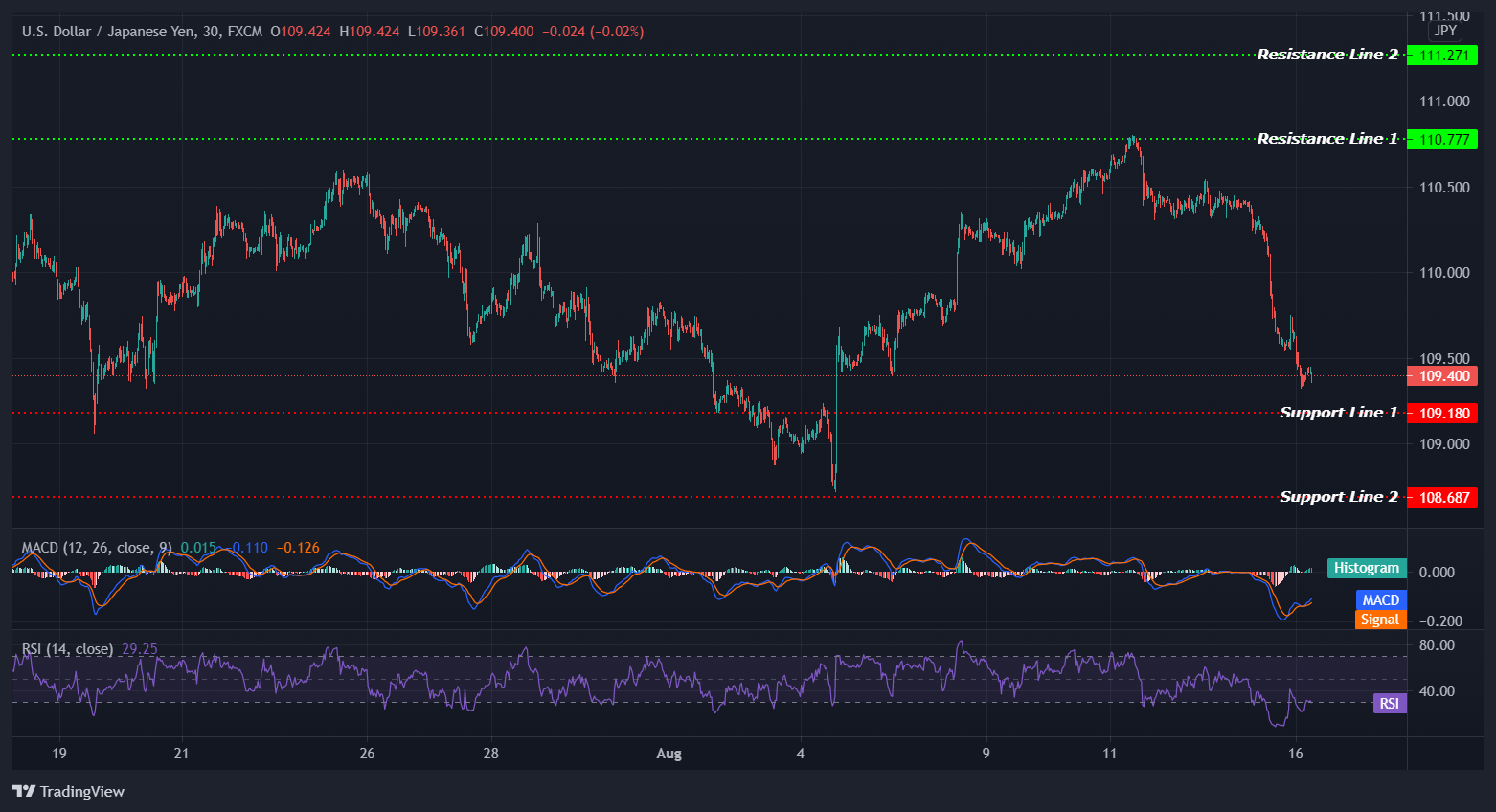EQUITIES
Asia-Pacific stocks slipped in Monday trade as investors reacted to the release of Chinese economic data for July. Mainland Chinese stocks were mixed by the afternoon, with the Shanghai composite rising 0.25% while the Hong Kong’s Hang Seng index declined 0.93%.
In Japan, the Nikkei 225 dropped 1.71% in afternoon trade, to lead the region losses. The Singapore’s Straits Times index slipped 0.34%, and shares in Australia also dipped, with the S&P/ASX 200 0.43% lower.
Elsewhere in Southeast Asia, the FTSE Bursa Malaysia KLCI Index in Malaysia slipped 0.53%, following local media reports that the country’s Prime Minister is set to resign today.
South Korea’s markets are closed for a holiday.
European shares poised for subdued start as investors took caution from last week slide in U.S. consumer sentiment to the lowest since 2011 amid Delta fears.
OIL
Oil opens week with decline as the continued spread of the Delta coronavirus variant hurt prospects for global demand. The Brent last traded at $69.80 per barrel, while U.S. crude futures traded at $67.52 per barrel.
On Friday last week, the Brent settled at $70.59 a barrel, and the WTI ends at $78.44 per barrel.
CURRENCIES
The dismal consumer sentiment survey last Friday pulled the Treasury yields down. The yield on benchmark 10-year Treasury notes was last 1.258% on Monday, erased a week of steady increases.
It also wiped out a week of gains for the dollar, sending it back to 92.549 against a basket of currencies from a near 5-month top of 93.195.
In cryptocurrencies, bitcoin edged higher to around $47,580, approaching the 3-month high of $48,190 marked over the weekend. The smaller rival ether rose to a fresh 3-month high at $3,340.
GOLD
Gold prices hovered near a 1-week high on Monday, as a plunge in U.S. consumer sentiment allayed some concerns of an early tapering by the Federal Reserve. Spot gold was flat at $1,774.00 per ounce, having earlier hit a high since Aug. 6 at $1,780.82. U.S. gold futures were steady at $1,775.80.
Silver fell 0.92% to $23.56 per ounce. Platinum dropped 1.78% to $1,007.70 and palladium was down 1.04% to $2,629.00.
ECONOMIC OUTLOOK
Asian share markets slipped on Monday after a raft of Chinese data showed a surprisingly sharp slowdown in the engine of global growth, just as much of the world races to stem the spread of the Delta variant of COVID-19 with vaccinations.
A cautious market environment is likely to prevail for longer with market players also adopting a wait-and-see attitude that could leave stocks to drift again. Growing political uncertainties, coupled with the unabating pandemic conditions, will continue to weigh on the near-term market sentiments.
China’s economic activity slowed more than expected in July, with fresh virus outbreaks adding new risks to a recovery. The industrial production grew 6.4% in July, short of expectations for a 7.8% YoY increase for the month. Retail sales in China rose 8.5% in July as compared with a year ago, far lower than the 11.5% rise forecast.
There was also added uncertainty about the possible geopolitical implications of the sudden collapse of the Afghan government and what it means for political stability in the region.
On the radar of investors this week would be minutes of the Fed's July meeting on Wednesday and chairman Jerome Powell's comments on Tuesday. U.S. retail sales data due Tuesday will be closely watched for further clues on consumer behaviour.
TECHNICAL OUTLOOK
[USDJPY]
Important Levels to Watch for Today:
- Resistance line of 110.777 and 111.271.
- Support line of 110.180 and 109.687.
Commentary/ Reason:
The dollar dipped to 109.400 yen for the first time since Aug. 5 on Monday, leaving behind last week's peak of 110.798.
The Japanese yen strengthened as the local shares fell on Monday, dragged by concerns of slow economic growth due to the Delta coronavirus variant. Japan’s Q2 GDP rose 0.3%, compared with the previous three months, when it contracted 0.9%, according to official preliminary estimates released Monday.
U.S. Michigan consumer sentiment index that dropped to a 10-year low last week also dragged the Treasury yields that undercut the dollar.
The yen rallied despite the worsening pandemic in Japan. The Japanese government is set to extend its "state of emergency" soft lockdown in regions including Tokyo to the middle of September as well as adding several other regions.
The USD/JPY pair faces strong negative pressure to break 109.18 and reach 108.68 level of monthly low. Technical indicators also had reached oversold conditions, with the Momentum bouncing modestly but the RSI still heading lower, skewing the risk to the downside.
The dollar could rally this week if minutes of the Federal Reserve's last policy meeting confirm a hawkish shift on tapering.














